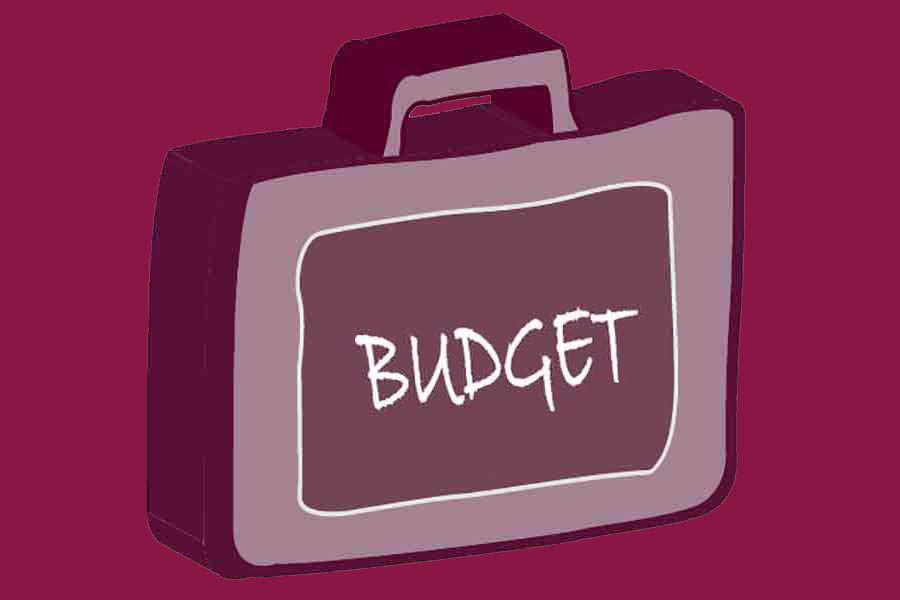
Published :
Updated :

For the first time after 17 years, the annual national budget will not be placed in national parliament. Instead, the budget for the fiscal year 2025-26 (FY26) will be announced by Dr Salehuddin Ahmed, the finance adviser of the Yunus-led interim government, via television broadcast. The last time such a thing happened was in 2008 when the then finance adviser, Dr Mirza Azizul Islam, under the Fakhruddin-led caretaker government, announced the national budget via televised speech. He unveiled two consecutive national budgets for FY07 and FY08 via television, as there was no elected government and parliament in the country.
After the fall of Sheik Hasina's autocratic regime on August 5 last year, parliament was also dissolved, and the interim government took charge. So, it is an exceptional time, though not unfamiliar to the country's citizens. During the past 54 years after the country's independence in 1971, people witnessed a number of such exceptions.
Placing the national budget in parliament is a constitutional obligation. Interestingly, radio and television announced the country's first national budget on June 30, 1972. At the beginning of his budget speech, Tazuddin Ahmed, then finance and planning minister, said: "I feel happy to place the budget in front of the people's representatives instead of broadcasting via radio and television. However, I hope I will not be compelled to announce the budget in such a way ever." He placed the annual budgets for 1971-72 and 1972-73 together. The budget for FY72 was a half-yearly budget (December 16, 1971- June 30, 1972) and was placed as a post-facto one to keep continuity. Again, during the war of independence in 1971, the Mujibnagar Government, the provisional government of Bangladesh under the premiership of Tazuddin Ahmed, made a budget worth Tk 86.28 million for the July-September period.
Besides television broadcasting, another change will be made while announcing the budget for FY26. Instead of placing it on Thursday, it will be announced on Monday (June 2, 2026), breaking the long tradition of budget placement on the last working day of the week. This is mainly due to the Eid-ul-Adha holidays, which are set to begin in the second week of June. The time of formal announcement of the budget is, however, likely to remain unchanged, which means the finance adviser will start his budget telecast at or after 3 pm.
The afternoon placement of the budget is a colonial legacy. Back then, members of the British parliament listened to the Indian budget through radio transmission in London. That's why the British-Indian budget was placed in the afternoon, at 5.00 pm. The federal budget in Pakistan is still placed at 5.00 pm. India, however, has revised the time. Since 2001, the country's annual union budget has been announced at 11.0am in the morning. India also has changed the practice of announcing the budget on the last day of February since 2016. Now, the budget is placed on February 1.
For the last couple of years, media people have been demanding a reschedule of the time of national budget placement at 11:00 am or 11:30 am instead of 3:00 pm. If the budget is announced at 11.00 am or 11.30 am on Thursday, the media, especially the newspapers, will get sufficient breathing space to listen, read, comprehend and analyse the budget. Currently, journalists have to come under tremendous stress due to the limited time of five/six hours left to cover budget. So, the scope of errors and omissions is ample now, and it is also not possible to provide all the information on critical budgetary steps. Businesses and experts will also get enough time to review the budget and make better observations and analyses.
There is an argument that the budget's prenoon placement will allow an unscrupulous group of market players and traders to manipulate fiscal measures. This is, however, poor logic. A mature economy must be able to absorb the immediate volatility in the financial and commodity markets due to the instant reactions of budgetary measures.
Finally, the forenoon announcement of the budget is not just a matter of convenience, but a necessity. It will provide the finance adviser and his teams with ample time to explain and clarify many issues to the media after the formal announcement. This process will make the budget more transparent. It's time to break with the colonial legacy of afternoon budget announcements and introduce the forenoon placement.
asjadulk@gmail.com


 For all latest news, follow The Financial Express Google News channel.
For all latest news, follow The Financial Express Google News channel.